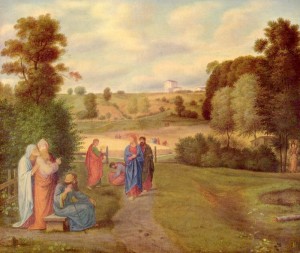Mark 7:1-8, 14-15, 21-23
This text is used for the Lectionary Year B on August 30, 2015.

When considering a text such as this one, it is perilously easy for us to “get up on our high horses” and begin with thoughtless critique and dismissal of the “dead legalism” of the Jewish leaders portrayed in this encounter. There is much to be learned and appreciated by trying to understand their perspective before looking at how Jesus reframed it.
After the exile, the religious leaders of the Jews said to themselves, “Never again will we allow our people to so disregard God’s Law that cataclysmic judgment falls on our nation. In order to prevent the people’s breaking of ‘the Big Laws,’ we’ll set up a hedge or a fence of smaller guidelines that will keep people far away from such transgression.” These guidelines began to accumulate as “the tradition of the elders” (7:3), and were eventually written down in the third century A.D. as the Mishnah. Various commentators include samples of these traditions in their expositions of this text.



